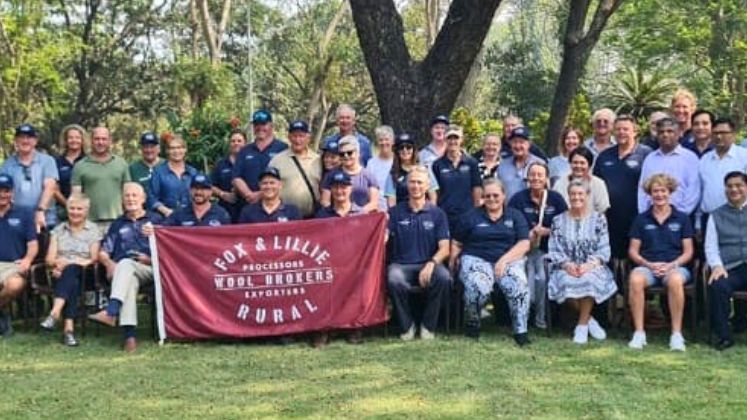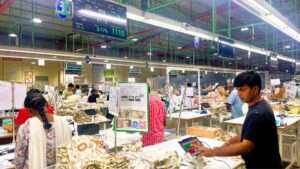
A recent industry research group travel led by broker-exporter Fox & Lillie emphasised India’s potential as a developing market for Australian wool. According to Fox & Lillie, Australia’s biggest overseas trade prospect in India is still raw wool.
India has the potential to grow into a larger market for Australian greasy wool, according to David Martin, general manager of export at Fox & Lillie.
Demand for all sorts of wool, from fine Merinos certified by the Responsible Wool Standard to crossbreds and cardings, has increased since the Australia-India Economic Cooperation and Trade Agreement.
The majority of goods made from Australian wool are produced in India, which naturally has a vast capacity for producing clothing domestically, according to Martin. According to our estimates, between 30 and 50 percent of imported wool is reexported as wool tops, yarns, or clothing. He added saying that the Indian domestic wool market is just as significant as the Indian export market, much as China’s.
India is a significant market for Fox and Lillie and Australian wool both now and in the future because of its expanding middle class, flourishing economy, and developing manufacturing skills.
The wool research tour stopped at Raymond Group, a long-time customer of Fox & Lillie and ardent promoter of Australian wool, one of the biggest vertically and horizontally integrated producers of worsted suiting fabric worldwide. The factory has a daily shipment capacity of 1,500,000 meters and mostly processes raw Australian Merino wool.
Additionally, visits to the Wool Research Agency in Mumbai, which is affiliated with the Ministry of Textiles, and Sharman Shawls in Ludhiana, Punjab district, showed the extent of R&D and investment in India’s wool industry and showed that the country is also using sustainable RWS wool to make luxury goods.
Together with representatives from Global Victoria, the Department of Foreign Affairs and Trade, Australian Wool Innovation, the Department of Agriculture, Fisheries and Forestry, and Austrade, as well as India’s Wool & Woollens Export Promotion Council, Wool Research Association, and other local Indian industry figures and consumers of Australian wool, the tour concluded with presentations and a networking event at the Australian High Commission in Delhi.






